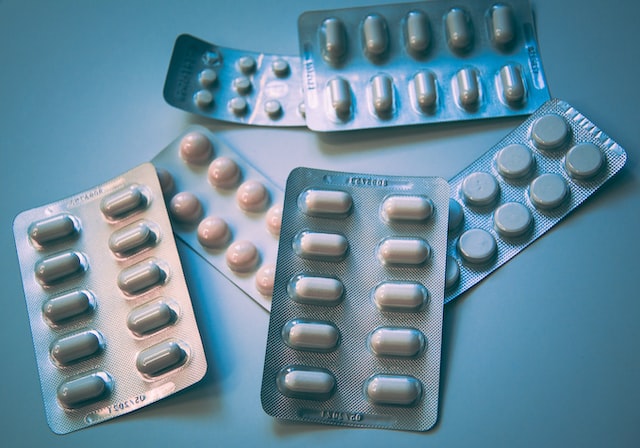Fasting has become increasingly popular as a way to improve health and wellbeing, but it can be challenging to ensure adequate nutrient intake while abstaining from food.
Many people turn to multivitamins as a way to supplement their diet during a fast. But do multivitamins break a fast in Singapore? The answer is not as simple as a yes or no.
Multivitamins typically contain small amounts of calories, but the real question is whether consuming these small amounts of calories during a fast negates its benefits.
As you read on, you’ll discover alternative ways of getting the essential vitamins and minerals your body needs during a fast, such as nutrient-dense foods, herbal teas and broths. What if you could get all the benefits of fasting without breaking it at all? could this be possible? Keep reading to find out.
What are multivitamins?

Multivitamins are dietary supplements that contain a combination of essential vitamins and minerals. These nutrients are vital for maintaining good health and preventing deficiencies.
The most common types of vitamins found in multivitamins include vitamins A, C, D, E, K, and the B vitamins (thiamine, riboflavin, niacin, pantothenic acid, biotin, vitamin B6, vitamin B12, and folate). Minerals commonly found in multivitamins include iron, zinc, iodine, chromium, and selenium.
Multivitamins are formulated to provide the body with the recommended daily amount (RDA) or adequate intake (AI) of these essential vitamins and minerals.
The RDA or AI values are established by health authorities such as the Food and Agriculture Organization (FAO) and the World Health Organization (WHO) and are intended to meet the needs of most individuals in a given population.
Multivitamins are available in different forms, such as tablets, capsules, liquids, gummies, and powders. They can be taken daily, weekly, or monthly, depending on the product. They are designed for different age groups and for specific health concerns, such as pregnancy, menopause, and weight loss.
It is important to note that multivitamins are not a substitute for a healthy diet, but rather an addition to it. A balanced diet that includes a variety of fruits, vegetables, whole grains, lean proteins, and healthy fats can provide the necessary vitamins and minerals for the body.
However, for individuals who have difficulty obtaining sufficient amounts of essential vitamins and minerals from their diet, multivitamins can provide a convenient and efficient way to meet their nutritional needs.
Does taking multivitamins break a fast?
The question of whether taking multivitamins breaks a fast is a complex one, as it depends on the type of fasting and the specific multivitamin being consumed.
Intermittent fasting, which involves alternating periods of eating and not eating, is often used for weight loss and improved health.
During the fasting period, the goal is to consume minimal calories. Some experts suggest that consuming small amounts of calories in the form of multivitamins or other supplements is unlikely to significantly impact the benefits of intermittent fasting.[Source]
However, other types of fasting, such as religious fasting or therapeutic fasting, may have stricter guidelines on calorie consumption. In these cases, it is important to consult with a healthcare professional or fasting expert to determine whether taking multivitamins would be appropriate and what dosage would be recommended.
It is also important to consider the specific multivitamin being consumed. Some multivitamins may contain added ingredients such as caffeine or other stimulants that could impact the fast. Additionally, some multivitamins may contain added calories that would break a fast.
In general, it is best to consult with a healthcare professional before making any decisions about taking supplements while fasting. They can help to determine the most appropriate course of action based on the type of fasting and the individual’s health status.
It is worth noting that there are alternative ways of getting the essential vitamins and minerals your body needs during a fast, such as nutrient-dense foods, herbal teas and broths. These options are generally considered less likely to break a fast, but again, it’s best to consult with a healthcare professional to determine what’s best for you.
6 Factors to consider when taking multivitamins during a fast
When considering taking multivitamins during a fast, there are several factors to keep in mind:
Individual differences in fasting tolerance
Each person’s body reacts differently to fasting, and what works for one person may not work for another. It’s important to understand your own body’s tolerance and to listen to how you feel during a fast. Some people may find that taking multivitamins during a fast doesn’t affect them, while others may find that it makes them feel unwell.
Interactions with medications
If you are taking any medications, it’s important to consult with a healthcare professional to ensure that taking multivitamins during a fast won’t interact with those medications.
Type of fasting
Different types of fasting may have different guidelines for what is considered “breaking a fast.” For example, intermittent fasting typically allows for small amounts of calories, while religious or therapeutic fasting may be more restrictive.
It’s important to understand the guidelines of the type of fasting you’re doing to know whether taking multivitamins would be appropriate.
Nutrient deficiencies
Fasting can increase the risk of nutrient deficiencies, especially if the fast is prolonged. Multivitamins can help to prevent deficiencies caused by the lack of food intake, particularly in those who have difficulty obtaining sufficient amounts of essential vitamins and minerals from their diet.
Quality and composition of multivitamins
Not all multivitamins are created equal, and some may contain added ingredients or calories that would break a fast. It’s important to read the label and choose a high-quality, pure multivitamin supplement.
Consult with healthcare professional
It’s always best to consult with a healthcare professional before making any decisions about taking supplements while fasting. They can help to determine the most appropriate course of action based on the type of fasting and the individual’s health status.
7 benefits of consuming nutrient-dense foods during a fast
Consuming nutrient-dense foods during a fast can provide numerous benefits for overall health and wellbeing. These foods are high in essential vitamins, minerals, and other nutrients that support the body’s functions and can help to prevent deficiencies.
Provides energy
Nutrient-dense foods provide energy to the body, which is especially important during a fast when calorie intake is restricted. This can help to reduce feelings of fatigue and improve overall energy levels.
Supports immune system
Foods high in vitamins and minerals, such as leafy greens and berries, support the immune system, helping to fight off infections and illnesses.
Promotes healthy digestion
Consuming nutrient-dense foods can help to promote healthy digestion by providing the body with the necessary fibers, vitamins, and minerals.
Promotes healthy skin
Nutrient-dense foods are high in antioxidants and essential fatty acids, which can help to promote healthy skin, reduce inflammation, and improve skin elasticity.
Improves mental health
Nutrient-dense foods that are high in vitamins and minerals, such as fatty fish, can help to improve mental health and reduce symptoms of depression and anxiety.
Reduces risk of chronic diseases
Consuming a diet rich in nutrient-dense foods can help to reduce the risk of chronic diseases, such as heart disease and type 2 diabetes.
Provides satiety
Nutrient-dense foods are often high in fiber and protein, which can provide satiety and help to reduce feelings of hunger during a fast.
It is worth noting that consuming nutrient-dense foods during a fast can be beneficial but it is still important to consult with a healthcare professional before making any decisions about taking supplements while fasting.
They can help to determine the most appropriate course of action based on the type of fasting and the individual’s health status.
5 Potential risks of relying solely on multivitamins during a fast
While taking multivitamins during a fast can be beneficial for preventing nutrient deficiencies, there are also potential risks to relying solely on them.
Inadequate nutrient intake
Multivitamins are not a substitute for a healthy diet, and relying solely on them during a fast may result in an inadequate intake of essential nutrients.
A balanced diet that includes a variety of fruits, vegetables, whole grains, lean proteins, and healthy fats can provide the necessary vitamins and minerals for the body.
Overdose
Taking too many multivitamins can lead to an overdose of certain vitamins and minerals, which can be harmful to the body. It’s important to follow the recommended dosage on the label or as advised by a healthcare professional.
Interactions with medications
Some multivitamins may interact with medications that you are taking, so it is important to consult with a healthcare professional before taking them.
Quality and composition
Not all multivitamins are created equal, and some may contain added ingredients or calories that would break a fast. It’s important to read the label and choose a high-quality, pure multivitamin supplement.
Lack of whole food benefits
Multivitamins, even if they contain all the essential vitamins and minerals, lack the benefits of whole food such as phytochemicals, dietary fibers, and other bioactive compounds which have a beneficial impact on overall health.
It is important to remember that multivitamins should be used as a supplement, not a replacement for a healthy diet. Consult with a healthcare professional to determine the most appropriate course of action and how to balance the use of multivitamins with nutrient-dense foods during a fast.




